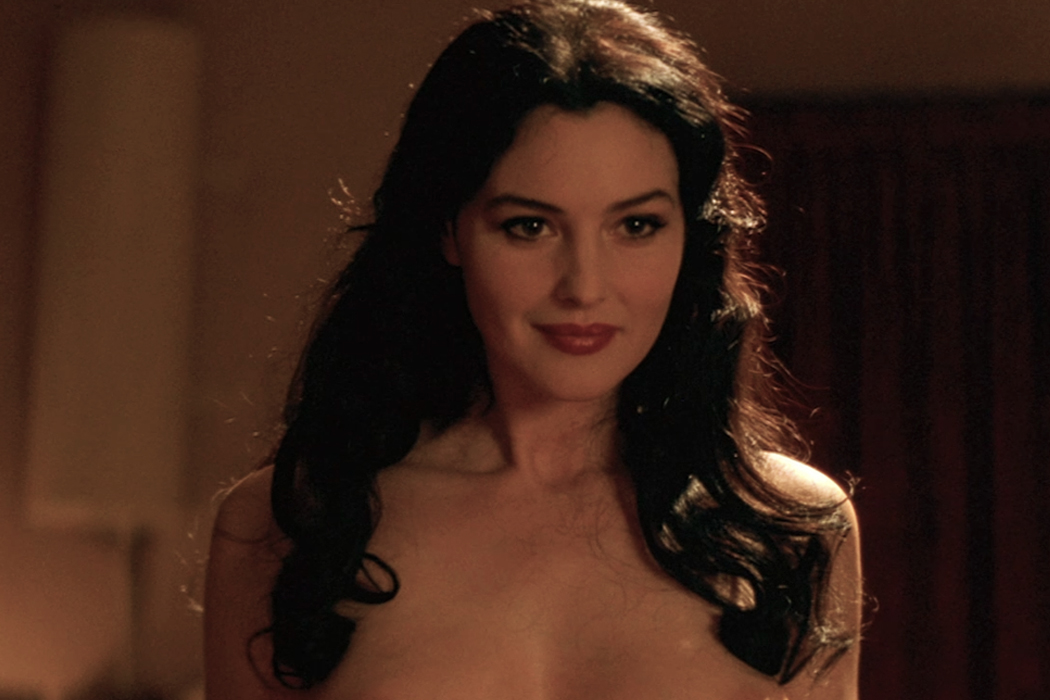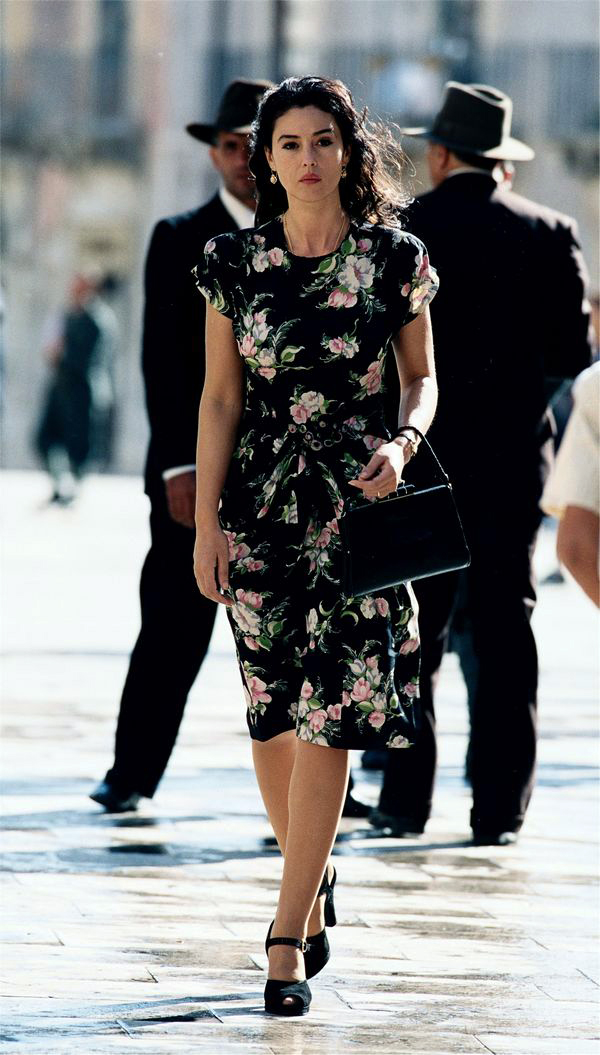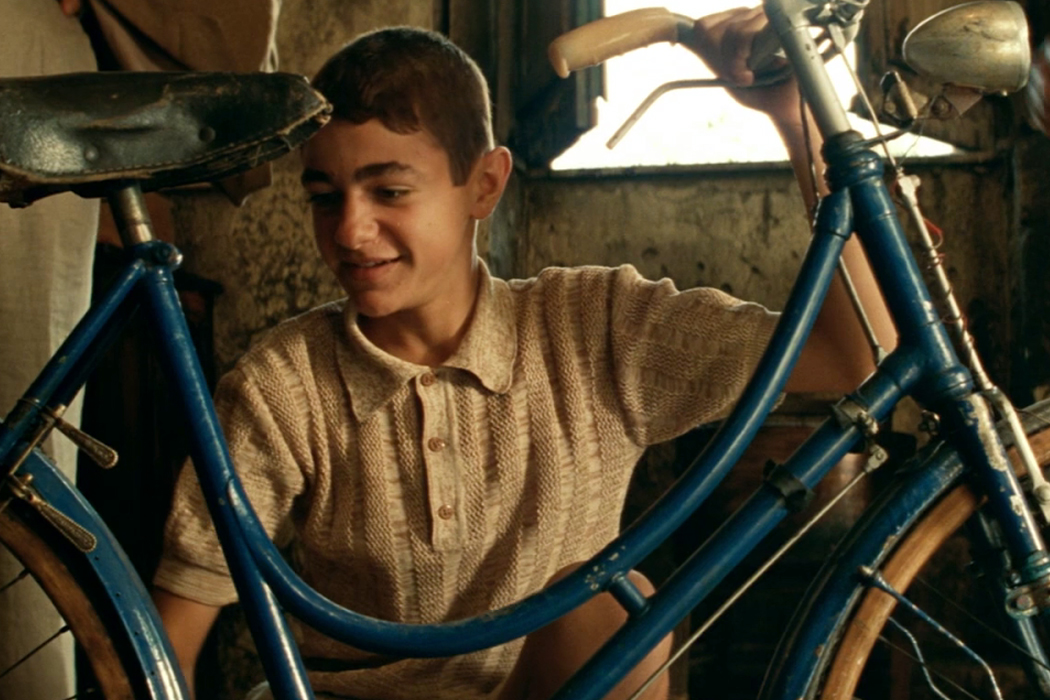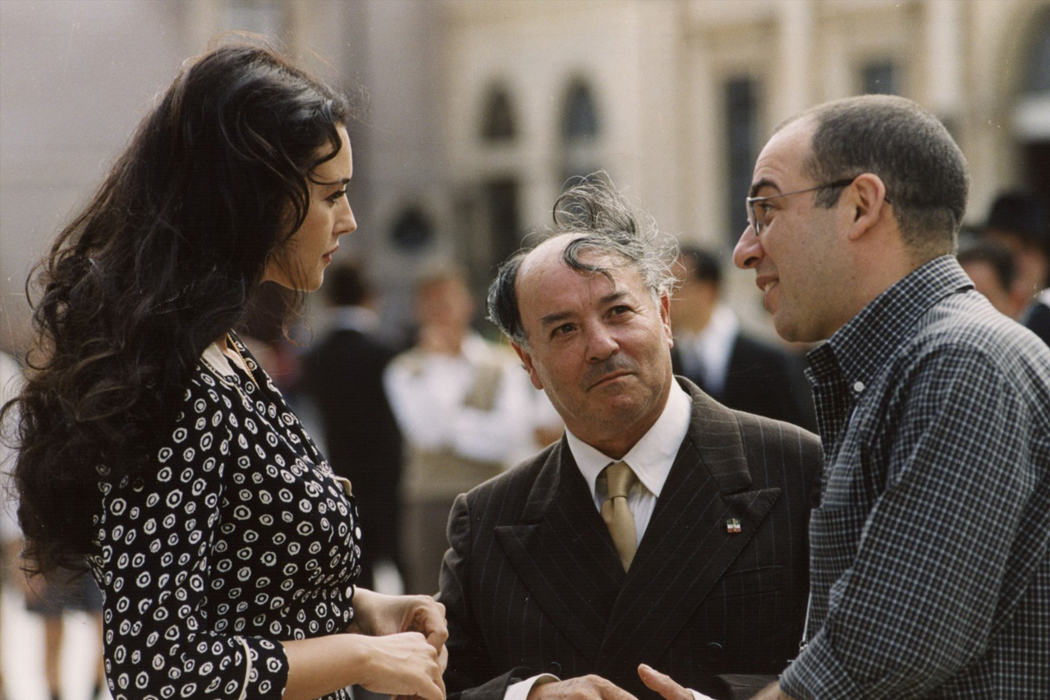Malena, released in 2000, was both written and directed by Giuseppe Tornatore who also directed the academy award-winning Cinema Paradiso. Although this film contains the mesmerizing presence of Monica Bellucci, the famous actress is unfortunately not encouraged to give a great performance, as she remains the object of attention, never seeming to have control of her own destiny.
This is a reflection of society and the role of women in 1940s Italy of course, but Malena is a film that shows the need for distance between a director and his subject. Bellucci’s Malena is a beautiful but lonely young wife whose husband has gone missing in World War 2, and the subject of the attention, curiosity and lecherous admiration of an entire Sicilian town, and most especially the object of affection of Renato a thirteen-year-old boy.
If you’re attempting to ridicule and satirize the town’s attitude to the aloof but alluring Malena then you need to have more distance as a director and not simply let your camera fall in love with your subject, no matter how entrancing she is. The problem here is that the director objectifies this beautiful woman almost as much as Renato and his school mates who sit on a wall and stare at her and follow her around on their bicycles everywhere she goes.
To know and love a beautiful woman is to go beneath the surface in life and in art, but Malena fails to get us closer to reality of this woman.
It’s no real surprise to learn that Tornatore and Bellucci met during the making of a Dolce & Gabbana commercial, as this film has at times the art directed feel of an advert without the creative distance needed to create a lasting work of art. There is a sentimentality and an adoption of easily shared references and framing that fail to engage the audience intellectually, or to demand something fresh or inventive from the actors or the crew. There’s little surprise that the film contains simulated scenes of masturbation.
Owning a bicycle and having long trousers become easy metaphors for becoming a man. Cut your hair and dye it bright red and you’re immediately a prostitute. These are simplistic devices that reveal a lack of creative thought, while audiences are often capable of much more insight and intelligence.




Tornatore himself remains outside watching the glamorous and tragic Malena, imagining the underwear she’s wearing and seeming to care little for her except for the enjoyment of imagining her sensual charms. To know and love a beautiful woman is to go beneath the surface in life and in art, but Malena fails to get us closer to reality of this woman. Even her eventual ‘triumph’ comes as the result of her husband’s return rather than her own actions.
This is cinema as commercial entertainment. Conventional and with too much sentiment in the ending that the film to that point just hasn’t earned, Malena may have Bellucci’s luminous, alluring and uplifting screen presence but it fails to bring her character to life once the credits have rolled.
Luger











